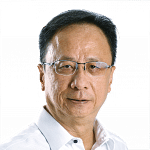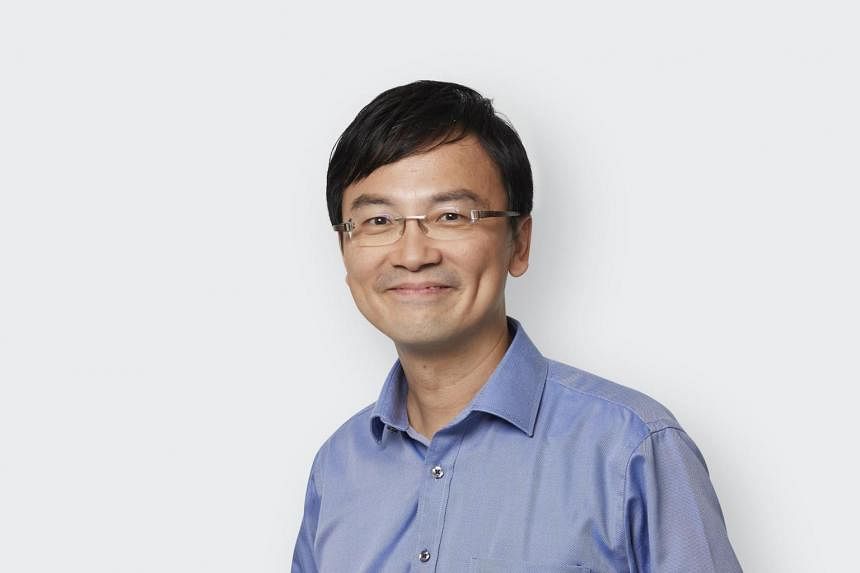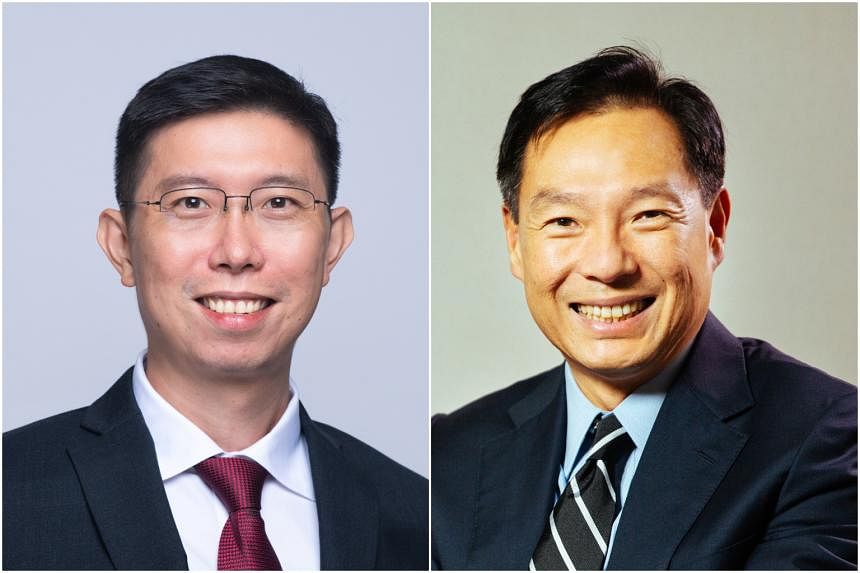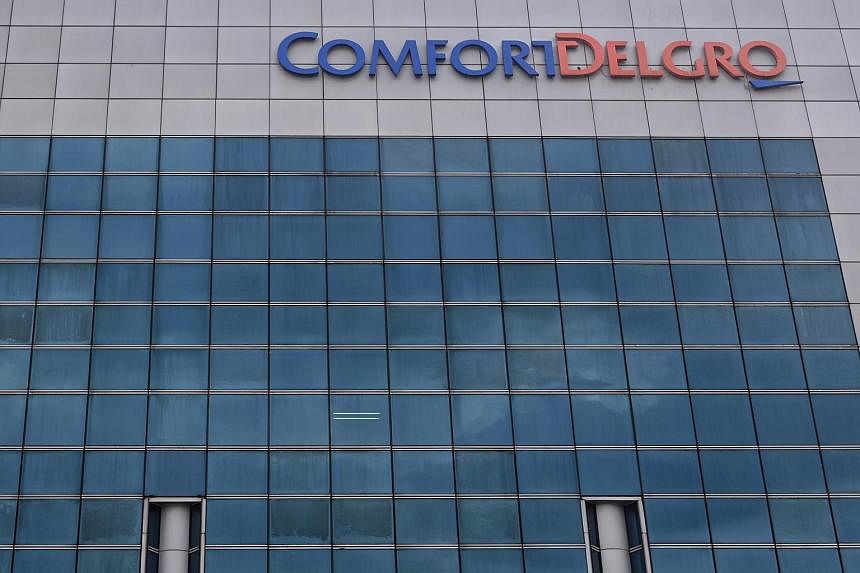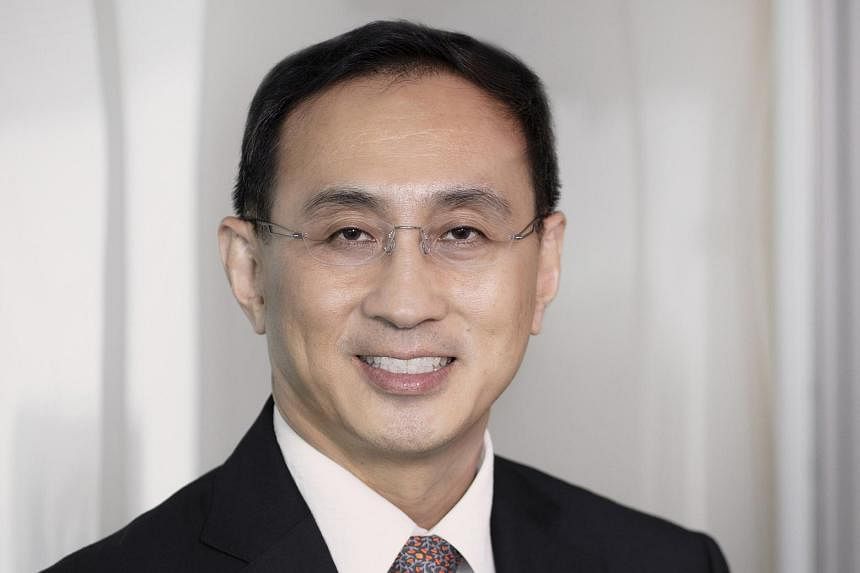10 percent of the senior leadership appointments in the public sector, in roles such as permanent secretaries, deputy secretaries and chief executives, are held by former SAF officers.
SAF’s first inspector-general chosen to oversee pre-schools most suitable among candidates: Masagos
SAF's first inspector-general Tan Chee Wee (left) will replace current ECDA CEO Jamie Ang.
PHOTOS: MINISTRY OF SOCIAL AND FAMILY DEVELOPMENT
Goh Yan Han
Oct 5, 2021
SINGAPORE - Several qualified candidates were considered for the role of chief executive officer of the Early Childhood Development Agency (ECDA), Minister for Social and Family Development Masagos Zulkifli has said.
Mr Tan Chee Wee, the first inspector-general in the Singapore Armed Forces, was assessed to be the most suitable among the candidates, he said.
Mr Tan is not unfamiliar with the social sector, as he had previously served in the then Ministry of Community Development, Youth and Sports from 2006 to 2008, he added.
There, the former brigadier-general in the SAF supervised the macro-planning of government-funded social services and development of the social service sector, building up capabilities and human resources, Mr Masagos said in a written response to a parliamentary question from Ms He Ting Ru (Sengkang GRC) on Monday (Oct 4).
The Ministry of Social and Family Development had considered the candidates in coordination with the Public Service Division (PSD), he said.
The Inspector-General's Office under Mr Tan was set up to strengthen safety governance and management systems in the SAF.
Mr Tan's appointment as ECDA chief had been announced in September. He became the CEO-designate on Sept 1 and his term will start officially on Dec 15.
Ms He had asked how many candidates were considered for the role of ECDA chief and what factors and qualifications were considered, as well as why the final decision was made to appoint a chief executive with no early childhood or educational experience.
In a separate parliamentary question, Mr Gerald Giam (Aljunied GRC) asked how many retired SAF officers with the rank of colonel or ME7 and above have held senior positions in public sector organisations and how the PSD determined which officers had sufficient competencies to lead these organisations despite not having had civilian work experience.
He also asked if the PSD had considered requiring these officers to spend several years building up sectoral knowledge and skills before taking the helm of these organisations.
Responding in a written reply on behalf of Prime Minister Lee Hsien Loong, Minister-in-charge of the Public Service Chan Chun Sing said that there were 15 former SAF officers currently holding senior leadership appointments in the public service, as at Sept 24.
They form around 10 per cent of the appointments, in roles such as permanent secretaries, deputy secretaries and chief executives, said Mr Chan, who is also Education Minister.
"Of the SAF personnel holding the rank of colonel or ME7 and above who retired between 2010 and now, about 7 per cent went on to assume senior public service appointments," he added.
He noted that in line with recruitment for other positions in the public service, the PSD adopts the principle of "best available person for the job" in recruiting for senior appointments.
Agencies typically consider candidates from within the ranks of their organisations, the wider public service including the uniformed services, and where relevant, the private sector.
When it comes to former uniformed services officers, agencies would take a considered view of the officer's career experience and competencies or qualities, together with other available candidates, before deciding on the best person for the senior role, said Mr Chan.
He added that candidates from the SAF, or the uniformed services in general, including the Home Team, would have served in roles that have developed in them a range of competencies, such as strategic leadership, organisation transformation, policy formulation, running of large-scale operations and technology management, that are generally relevant to senior management positions in the public service.
He said: "They also have valuable experience in working with, understanding, motivating, and winning the confidence of full-time and operationally ready national servicemen who are Singaporeans from all walks of life."
Officers who demonstrate the capacity to assume top leadership positions are tested and prepared through challenging postings and leadership programmes, he said.
In addition, these officers are provided opportunities to develop whole-of-government perspectives through inter-agency projects, board directorships and external postings to the public service during their military careers.
Mr Chan said: "These experiences prepare the officers to assume senior appointments in the military, and also provide them with the background and perspective to take on senior leadership positions in the wider public service, if called upon and found suitable."
He noted that sector-specific knowledge and skills are part of the considerations, but not the only consideration.
Public service leadership teams are expected to comprise leaders who bring diverse experiences to the table and operate cohesively as a team, tapping each other's skills and experiences, he said.


